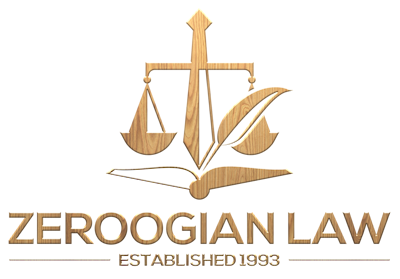DUI/Traffic Offenses
It depends upon how many times you have been convicted of a DUI offense in the 10 years prior to the date of the current arrest. Aggravating factors can also increase the minimum jail times.
If the current arrest is your first DUI offense in 10 years, the Judge will impose a fine of $200 – $500 and/or jail time of 48 hours to 30 days. There will also be substance abuse treatment of 90 days and a license suspension of 4-6 months.
If you have two DUI offenses in 10 years, you can expect a $350 – $500 fine and 7 days to 6 months jail time, as well as 1 year of substance abuse treatment and a license suspension of 12-18 months.
A third offense carries a $500 – $1,000 fine and 30 days to 12 months in jail, substance abuse treatment of 1 year and a license suspension of 18-36 months.
A fourth offense is a Class D felony, which carries 120 days mandatory minimum jail time and a $1,000 – $10,000 fine, substance abuse treatment for one year and license suspension of 30-60 months.
For 2 or more offenses, an installed ignition interlock device or surrender of license plates are mandatory.
Alcohol concentration is measured in grams of alcohol per 210 liters of breath or 100 millileters of blood. The appropriate legal limits are:
-
Under 21: 0.02
-
Over 21: 0.08
-
Driving a Commercial Vehicle: 0.04
Yes, you may be charged with driving while under the influence of alcohol even if your alcohol concentration is below the legal limit or you did not take a blood, breath, or urine test. The prosecutor would need only to prove the motorist was under the influence of alcohol. It is presumed a person with an alcohol concentration less than 0.05 is not under the influence, however, this presumption may be rebutted by the prosecution.
The alcohol concentration levels exist because if your alcohol concentration is above the legal limit, you can be charged with driving with a prohibited alcohol concentration. The prosecutor would need only to prove you were “operating a vehicle” and had an unlawful alcohol concentration level. The prosecutor would not have to prove any instances of unsafe driving, or provide any other evidence of the operator being under the influence.
Yes, you may be charged in the same manner as someone whose alcohol content is below the legal limit. The prosecutor would need only to prove the motorist was under the influence of alcohol by using other evidence such as divided-attention exercises, smell of alcohol on the motorist, etc. Also the refusal to take a chemical test for alcohol is always admissable in court.
A refusal to take a blood, breath, urine or other chemical alcohol test will result in a mandatory license suspension. The length of the suspension depends on the number of DUI offenses you have had in the 10-year period prior to the current arrest. A single offense is 30-120 days and the suspension increases up to a mandatory 60 months for a fourth offense. Also, refusal to take a chemical test is always admissible in court.
The best advice is to contact a lawyer if you are unsure. You have a right to try to call a lawyer for 10-15 minutes before you take a blood, breath, or urine test.
The six potential aggravating factors are:
- driving 30 mph over the speed limit
- driving in the wrong direction on a limited access highway
- causing an accident resulting in death or serious physical injury
- 0.15 alcohol level within 2 hours of driving
- refusing to submit to blood, breath, or urine test if not the first offense
- having a passenger under 12 years of age
If aggravating factors are present, the minimum mandatory sentence for the offense is doubled.
The penalty would typically be a fine of $100 – $500 or 20 hours of community service, no jail time, some substance abuse education, and suspension of license until 18th birthday or the length of the underlying suspension, whichever is longer.
The court may suspend your license prior to trial if you have refused to take a chemical test, if it is your 2nd or greater offense, if the accident resulted in death or serious injury, or your license has been suspended in the prior 5 years.
A hardship license may be available to those who would be unduly burdened by their license suspension. You can only be eligible for a hardship license after the statutory minimum license suspension.
